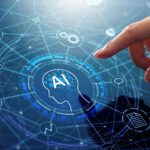10 Fascinating Facts About Artificial Intelligence You Should Know
Artificial Intelligence (AI) has quickly shifted from being a futuristic concept to a powerful force shaping how we live, work, and interact with the world around us. Whether you’re browsing social media, shopping online, or navigating city traffic, AI is quietly working behind the scenes. Yet, many people still think of AI as something mysterious—or even intimidating.
Here’s a look at 10 fascinating facts about Artificial Intelligence that reveal how widespread, transformative, and intriguing this technology truly is.
- AI Has Been Around for Decades
Many people think AI is a recent innovation, but the concept has been around for nearly 70 years. The term “Artificial Intelligence” was coined in 1956 by John McCarthy, a computer scientist who organized the famous Dartmouth Conference where AI as a field was officially born. Since then, AI has gone through waves of optimism, funding booms, and periods of slower progress known as “AI winters.”
- You’re Using AI Every Day
Even if you don’t realize it, AI is already woven into your daily routine. When Netflix suggests shows you’ll love, when Google Maps reroutes you around traffic, or when your phone’s virtual assistant answers your questions—that’s AI in action. AI’s ability to analyze data and predict what users want makes it a vital part of countless apps and services.
- AI is Transforming Healthcare
One of the most exciting applications of AI is in healthcare. AI tools help doctors analyze complex medical images, detect diseases like cancer earlier, and even predict patient outcomes based on electronic health records. Researchers are using AI to speed up drug discovery and design new treatment plans. While AI doesn’t replace human doctors, it’s becoming a powerful partner in improving patient care.
- AI Has Creative Talents
It’s not just crunching numbers—AI has shown surprising creativity. Tools like Midjourney, DALL-E, and Google Veo can generate original artwork, stunning images, and even videos from text prompts. AI is composing music, writing poetry, and even contributing to movie scripts. Creative industries are exploring how AI can become a collaborative partner rather than a replacement for human artists.
- AI Learns from Data
Unlike humans who learn from experience and emotions, AI learns from data. Machine learning, a core part of AI, involves training models with large datasets so they can recognize patterns and make predictions. For example, an AI trained on thousands of medical images learns how to identify tumors in scans. The quality of the data used to train AI is crucial—bad data can lead to biased or inaccurate results.
- Bias is a Real Challenge
Despite its benefits, AI has a significant challenge: bias. AI systems learn from the data they’re fed, and if that data includes biases—racial, gender-based, or socioeconomic—the AI can reproduce and even amplify those biases. For instance, facial recognition tools have faced criticism for lower accuracy rates with people of color. Researchers are working hard to develop fairer, more ethical AI systems.
- AI Powers Self-Driving Cars
AI plays a major role in developing autonomous vehicles. Companies like Tesla, Waymo, and Cruise are building cars that use AI to “see” the world through cameras, radar, and lidar sensors. AI analyzes traffic, reads signs, and makes split-second decisions to navigate safely. While fully autonomous cars are still in development, AI is already assisting drivers through features like lane-keeping, adaptive cruise control, and emergency braking.
- AI is Saving Businesses Time and Money
From automating customer service with chatbots to analyzing big data for strategic insights, businesses are saving huge amounts of time and money with AI. Retailers use AI to predict shopping trends, financial institutions detect fraud in real-time, and manufacturers use predictive maintenance to prevent equipment failures. Companies that adopt AI can gain a significant competitive edge.
- AI Won’t Steal Every Job
There’s a lot of fear that AI will wipe out jobs. While it’s true that AI will replace some repetitive tasks, it’s also creating entirely new careers in areas like AI engineering, machine learning operations (MLOps), data science, and AI ethics. Upskilling and learning how to work alongside AI will be key for professionals in every industry.
- The Future of AI is Limitless
AI is advancing quickly, and the future looks both exciting and challenging. Researchers are exploring Artificial General Intelligence (AGI)—a form of AI capable of human-like understanding across many domains. While we’re still far from AGI, the rapid progress in areas like natural language processing, robotics, and AI creativity suggests the possibilities are endless. The key will be ensuring AI grows responsibly, ethically, and in ways that benefit humanity.
Why You Should Learn AI?
Whether you’re aiming for a career in AI technology, running a business, or simply curious about the future, understanding AI is no longer optional—it’s essential. AI is transforming industries, opening up new career paths, and changing how we solve complex problems. The more you learn about AI, the better prepared you’ll be to thrive in a world where technology and human creativity work hand in hand.
Looking to study AI Engineering Course in Bangalore? Aditya College of Engineering and Technology offers cutting-edge AI courses, expert faculty, and top-notch labs to launch your future in artificial intelligence. Start your journey with us today!











































